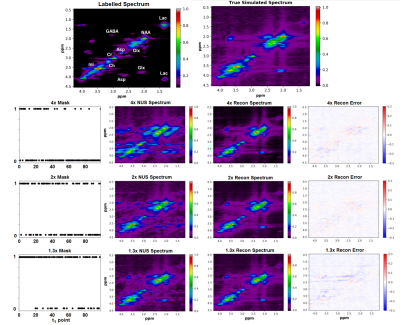Sunrise Session
Deep Learning in MRS(I)
Session Topic: Educational Q&A: MRS Sunrise
Session Sub-Topic: Deep Learning in MRS(I)
Sunrise Session
ORGANIZERS: Wolfgang Bogner, Malgorzata Marjanska
| Wednesday Parallel 2 Live Q&A | Wednesday, 12 August 2020, 13:45 - 14:30 UTC | Moderators: Roland Kreis |
Skill Level: Basic to Intermediate
Session Number: S-Th-05
Overview
This course will focus on topics of basic to intermediate level, covering examples where advanced machine learning such as deep learning approaches have the potential to revolutionize MRS and MRSI data acquisition, reconstruction, and interpretation. This offers in particular the potential to bring MRSI closer to clinical application by offering overall higher data quality, improved quality assurance, and more (time-)efficient processing that are mandatory for routine clinical use.
Target Audience
Developers of MRS and MRSI techniques that aim to improve the acquisition, reconstruction, and quantification of MRS(I) and clinicians interested in the potential future impact on clinical application.
Educational Objectives
As a result of attending this course, participants should be able to:
- List traditional MRS(I) processing approaches that can benefit from deep learning;
- Describe critical issues with applying advanced machine learning in MRS(I); and
- Summarize potential benefits of deep learning for clinical application.
 |
How Can CNNs Improve the Quality of My Acquired MRS/MRSI Data?
Zohaib Iqbal
Deep learning is a new and exciting frontier for magnetic resonance spectroscopy (MRS) and spectroscopic imaging (MRSI) scientists. With this new technology, it may be possible to improve a many active areas of research, including simulations, pulse sequence design, experimental acquisitions, reconstruction, quantitation, and clinical outcome correlation. However, just like any new technology, deep learning has strengths and weaknesses that need to be understood before large-scale implementation. This presentation will explore how deep learning as improved the field of MRS and MRSI, and how it will continue to do so in the future.
|
|
| How Can Deep Learning Help Me Quantify & Understand MRS Data?
Saumya Gurbani
This talk will cover an overview of deep learning algorithms and techniques that can enable scientists and clinicians to analyze MR spectroscopy data. Three core areas of MRS analysis will be discussed: reconstruction, quantification, and quality control. Representative papers from the literature will be presented to highlight some of the recent advances in deep learning for MRS.
|

 Back to Program-at-a-Glance
Back to Program-at-a-Glance Watch the Video
Watch the Video Back to Top
Back to Top